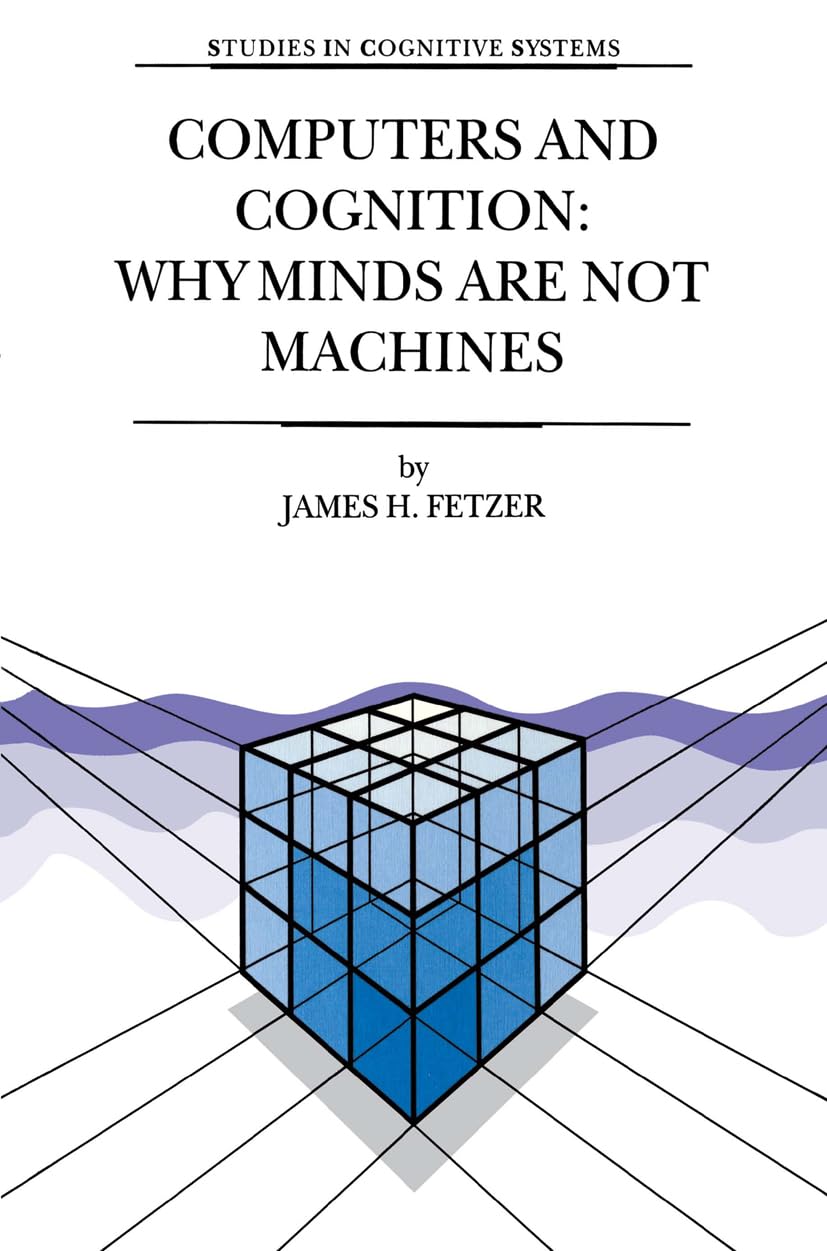
Title

Computers and Cognition: Why Minds are Not Machines (Studies in Cognitive Systems Volume 25),Used
Delivery time: 8-12 business days (International)
An important collection of studies providing a fresh and original perspective on the nature of mind, including thoughtful and detailed arguments that explain why the prevailing paradigm the computational conception of language and mentality can no longer be sustained. An alternative approach is advanced, inspired by the work of Charles S. Peirce, according to which minds are signusing (or semiotic') systems, which in turn generates distinctions between different kinds of minds and overcomes problems that burden more familiar alternatives. Unlike conceptions of minds as machines, this novel approach has obvious evolutionary implications, where differences in semiotic abilities tend to distinguish the species. From this point of view, the scope and limits of computer and AI systems can be more adequately appraised and alternative accounts of consciousness and cognition can be more thoroughly criticised.Readership: Intermediate and advanced students of computer science, AI, cognitive science, and all students of the philosophy of the mind.
By changing our most important processes and
products, we have already made a big leap forward. This ranges from the
increased use of more sustainable fibers to the use of more
environmentally friendly printing processes to the development of
efficient waste management in our value chain.
⚠️ WARNING (California Proposition 65):
This product may contain chemicals known to the State of California to cause cancer, birth defects, or other reproductive harm.
For more information, please visit www.P65Warnings.ca.gov.
Shipping & Returns
Shipping
We ship your order within 2–3 business days for USA deliveries and 5–8 business days for international shipments. Once your package has been dispatched from our warehouse, you'll receive an email confirmation with a tracking number, allowing you to track the status of your delivery.
Returns
To facilitate a smooth return process, a Return Authorization (RA) Number is required for all returns. Returns without a valid RA number will be declined and may incur additional fees. You can request an RA number within 15 days of the original delivery date. For more details, please refer to our Return & Refund Policy page.
Shipping & Returns
Shipping
We ship your order within 2–3 business days for USA deliveries and 5–8 business days for international shipments. Once your package has been dispatched from our warehouse, you'll receive an email confirmation with a tracking number, allowing you to track the status of your delivery.
Returns
To facilitate a smooth return process, a Return Authorization (RA) Number is required for all returns. Returns without a valid RA number will be declined and may incur additional fees. You can request an RA number within 15 days of the original delivery date. For more details, please refer to our Return & Refund Policy page.
Warranty
We provide a 2-year limited warranty, from the date of purchase for all our products.
If you believe you have received a defective product, or are experiencing any problems with your product, please contact us.
This warranty strictly does not cover damages that arose from negligence, misuse, wear and tear, or not in accordance with product instructions (dropping the product, etc.).
Warranty
We provide a 2-year limited warranty, from the date of purchase for all our products.
If you believe you have received a defective product, or are experiencing any problems with your product, please contact us.
This warranty strictly does not cover damages that arose from negligence, misuse, wear and tear, or not in accordance with product instructions (dropping the product, etc.).
Secure Payment
Your payment information is processed securely. We do not store credit card details nor have access to your credit card information.
We accept payments with :
Visa, MasterCard, American Express, Paypal, Shopify Payments, Shop Pay and more.
Secure Payment
Your payment information is processed securely. We do not store credit card details nor have access to your credit card information.
We accept payments with :
Visa, MasterCard, American Express, Paypal, Shopify Payments, Shop Pay and more.
Related Products
You may also like
Frequently Asked Questions
- Q: What is the main topic of 'Computers and Cognition: Why Minds are Not Machines'? A: The book explores the nature of mind and argues against the computational conception of language and mentality, proposing an alternative perspective inspired by Charles S. Peirce that views minds as semiotic systems.
- Q: Who is the author of this book? A: The author of 'Computers and Cognition: Why Minds are Not Machines' is J.H. Fetzer.
- Q: What is the publication date of this book? A: This book was published on December 31, 2000.
- Q: What is the binding type of 'Computers and Cognition'? A: The book is available in hardcover binding.
- Q: How many pages does this book have? A: The book contains 340 pages.
- Q: What condition is the used book in? A: The used book is listed in very good condition.
- Q: What audience is this book intended for? A: The book is aimed at intermediate and advanced students in computer science, AI, cognitive science, and philosophy of mind.
- Q: What are the key themes discussed in the book? A: Key themes include the limitations of computational models of mind, the evolutionary implications of semiotic systems, and critiques of alternative accounts of consciousness and cognition.
- Q: Is the book suitable for beginners in cognitive science? A: This book is primarily intended for intermediate and advanced readers, so beginners may find it challenging.
- Q: Does the book provide practical applications of its theories? A: While the book presents theoretical arguments, it primarily focuses on philosophical discussions about the nature of mind and cognition rather than practical applications.
